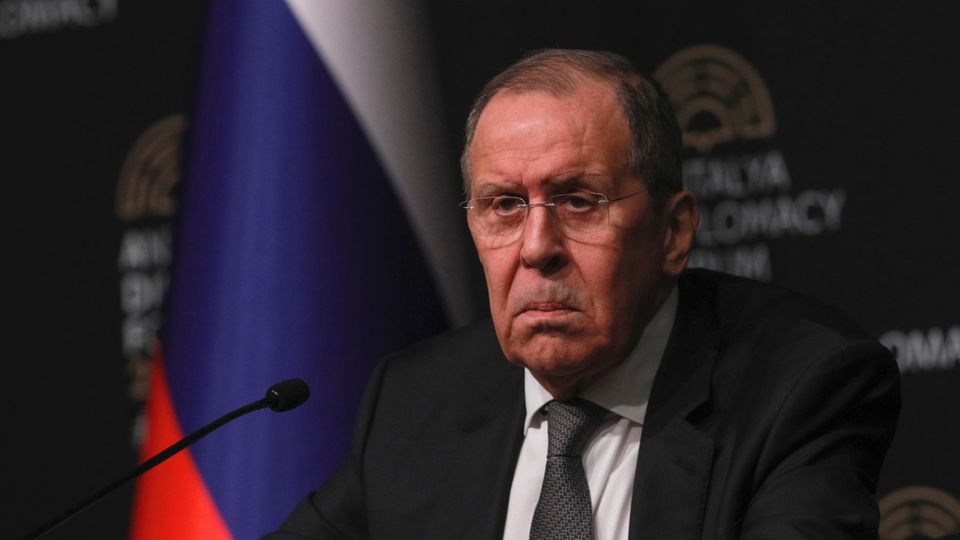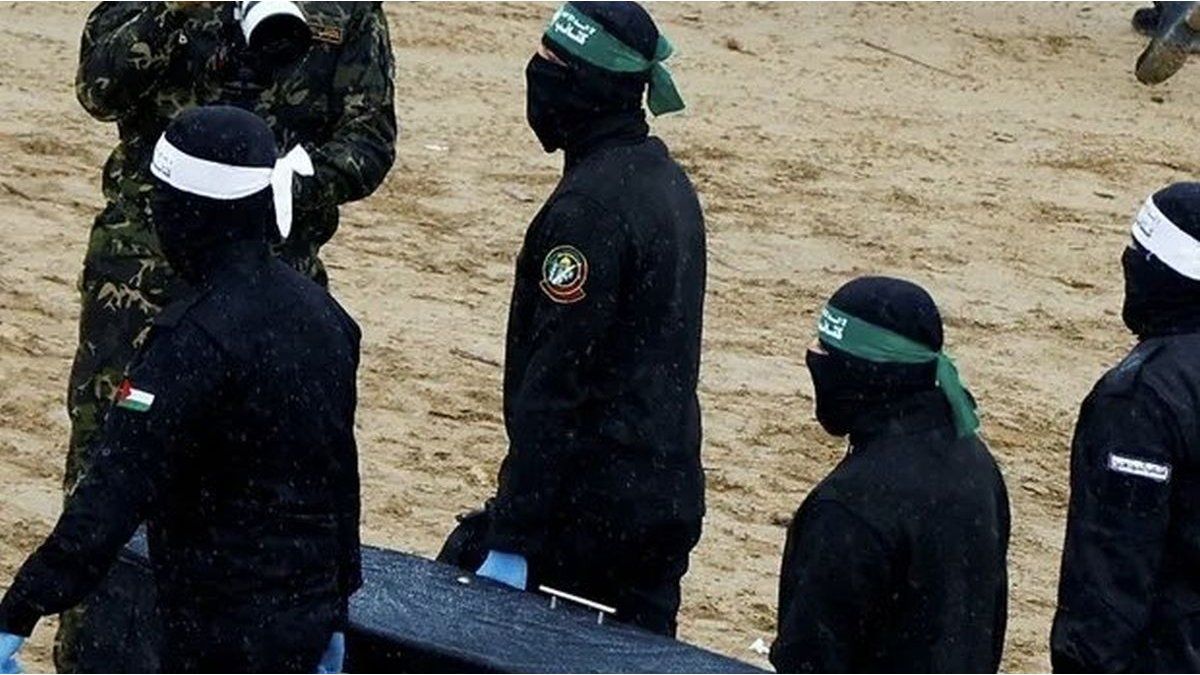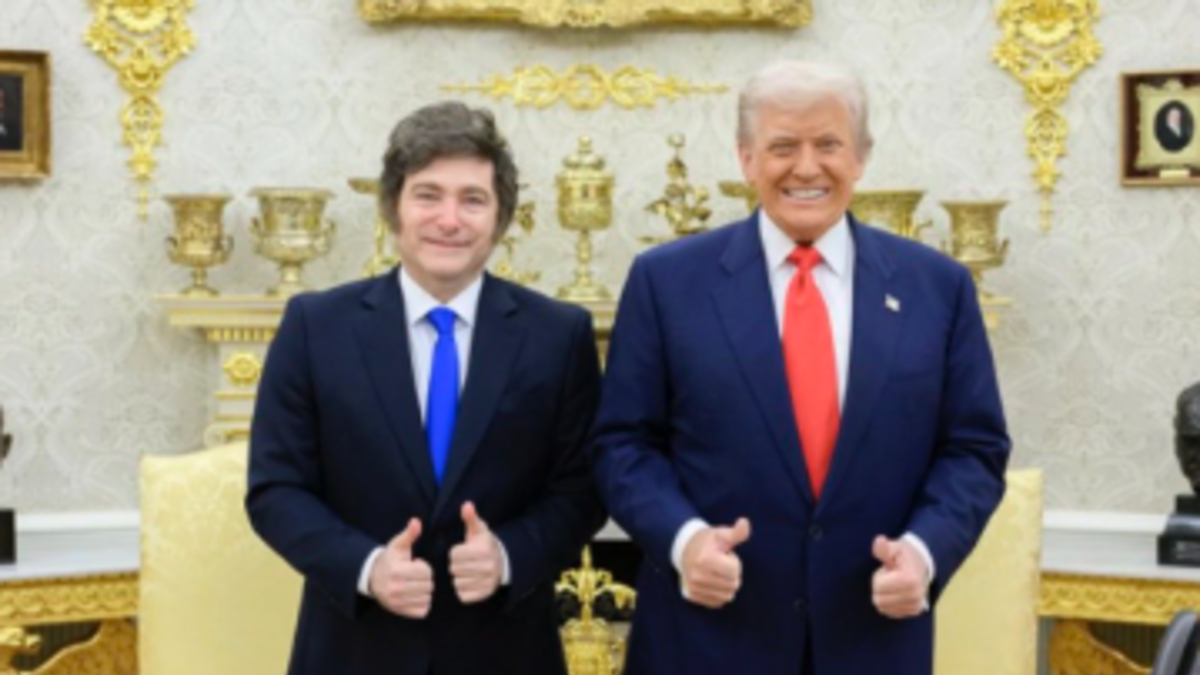Ukrainian Foreign Minister Dmytro Kuleba and his Russian counterpart Sergei Lavrov have little to report after their talks in Turkey. The faint hopes of an early end to the war in Ukraine are thus disappointed.
Even after a high-level attempt at conciliation, there is still no sign of peace in the Ukraine war. A meeting between Ukrainian Foreign Minister Dmytro Kuleba and his Russian counterpart Sergey Lavrov in Turkey on Thursday did not bring any significant progress. Two weeks after the start of the Russian attack on the neighboring country, it was not possible to agree on at least a temporary ceasefire or even further escape corridors. The European Union wants to discuss the situation at a summit in France in the evening.
Russian President Vladimir Putin launched an attack on Ukraine on February 24. According to the UN, more than 500 civilians have already been killed. Ukraine assumes the number of victims is much higher. More than two million people are displaced. Since the beginning of the war there have been talks by negotiators about temporary ceasefires. However, the foreign ministers’ meeting in Turkey was the first high-level attempt at negotiations. Turkey was there as a mediator.
Ukraine wants to end the war
Ukraine had made it clear that, in principle, they wanted to talk about ways to end the conflict. Lavrov, on the other hand, subsequently explained that the right forum for this would be the talks that had already begun in Belarus, a common neighboring country that is closely allied with Russia. Lavrov accused the West of exacerbating the conflict by supplying arms to Ukraine.
Kuleba complained that Lavrov was unable to agree escape corridors himself, not even for the port city of Mariupol, which was suffering particularly badly. The Russian foreign minister must discuss this in Moscow. There was also talk of a 24-hour ceasefire, but: “We have not made any progress on this issue, because it seems that these decisions are being made by others in Russia.” However, both Lavrov and Kuleba were in principle ready for further talks.
Russia demands neutrality from Ukraine
As a condition for a cessation of fighting, Russia is demanding that Ukraine declare itself neutral in its constitution. In addition, Kyiv must recognize the annexed Black Sea peninsula of Crimea as Russian and the separatist areas of Luhansk and Donetsk as independent states. Both sides had recently indicated a certain willingness to compromise. But Kuleba stressed: “Ukraine has not surrendered, is not surrendering and will not surrender!” Kyiv is ready for diplomatic solutions.
According to Ukrainian sources, another attempt was to start in the morning in the war zone in eastern Ukraine to rescue people from cities in the Sumy region in the northeast via three escape corridors to the city of Poltava further west. A ceasefire is planned regionally for this, the regional administration announced. Almost 50,000 people escaped from the surrounded city of Sumy on Tuesday and Wednesday. The evacuation of Mariupol, on the other hand, has been fought in vain for days.
Ukraine hopes for arms deliveries – also from Germany
Ukraine is hoping for more arms deliveries from Germany, as Ambassador Andriy Melnyk told the German Press Agency. The German armaments industry made proposals to the Ministry of Defence. “We expect a positive decision.”
Despite a clear refusal by the US government, Melnyk is not giving up hope of delivering MiG-29 fighter jets. Poland had agreed to make the planes available to the US with the ultimate goal of bringing them to Ukraine. The US government refuses because it fears NATO involvement in the war. The US House of Representatives approved $13.6 billion (€12.3 billion) in aid to Ukraine overnight.
“Freeze for Freedom”
Ambassador Melnyk also increased the pressure on Germany to agree to an import ban on Russian energy supplies. In view of the high number of war victims among the civilian population, saying no to this is “morally unacceptable”. The federal government rejects this because Germany is simply too dependent on energy from Russia and economic upheaval could threaten. However, former Federal President Joachim Gauck said on ARD: “We can also freeze for freedom.”

Even without the import ban, Germany will have to prepare for a recession and even higher prices as a result of the war – the head of the German Institute for Economic Research, Marcel Fratzscher, told the “Neue Osnabrücker Zeitung”. In view of the burdens, Germany should give up the debt brake for the next few years.
Millions of people are fleeing Ukraine
A huge task is facing Germany – as well as other EU countries – including the care of refugees from Ukraine. According to the UN, more than two million people have fled Ukraine since the war began on February 24. Of these, 1.43 million people arrived in Poland alone, according to the authorities there. Germany has now registered more than 80,000 war refugees, but assumes higher numbers.
Federal Education Minister Bettina Stark-Watzinger (FDP) wants to use refugee teachers from Ukraine to look after the children in schools and daycare centers, as she told the Funke media group. The head of the Federal Employment Agency, Detlef Scheele, promised refugees unbureaucratic support when looking for work in an interview with the editorial network Germany. The leading business organizations started an aid initiative to support the integration of refugees into the German labor market. Next week the Prime Ministers want to discuss the consequences of the war for Germany.
Source: Stern
David William is a talented author who has made a name for himself in the world of writing. He is a professional author who writes on a wide range of topics, from general interest to opinion news. David is currently working as a writer at 24 hours worlds where he brings his unique perspective and in-depth research to his articles, making them both informative and engaging.




